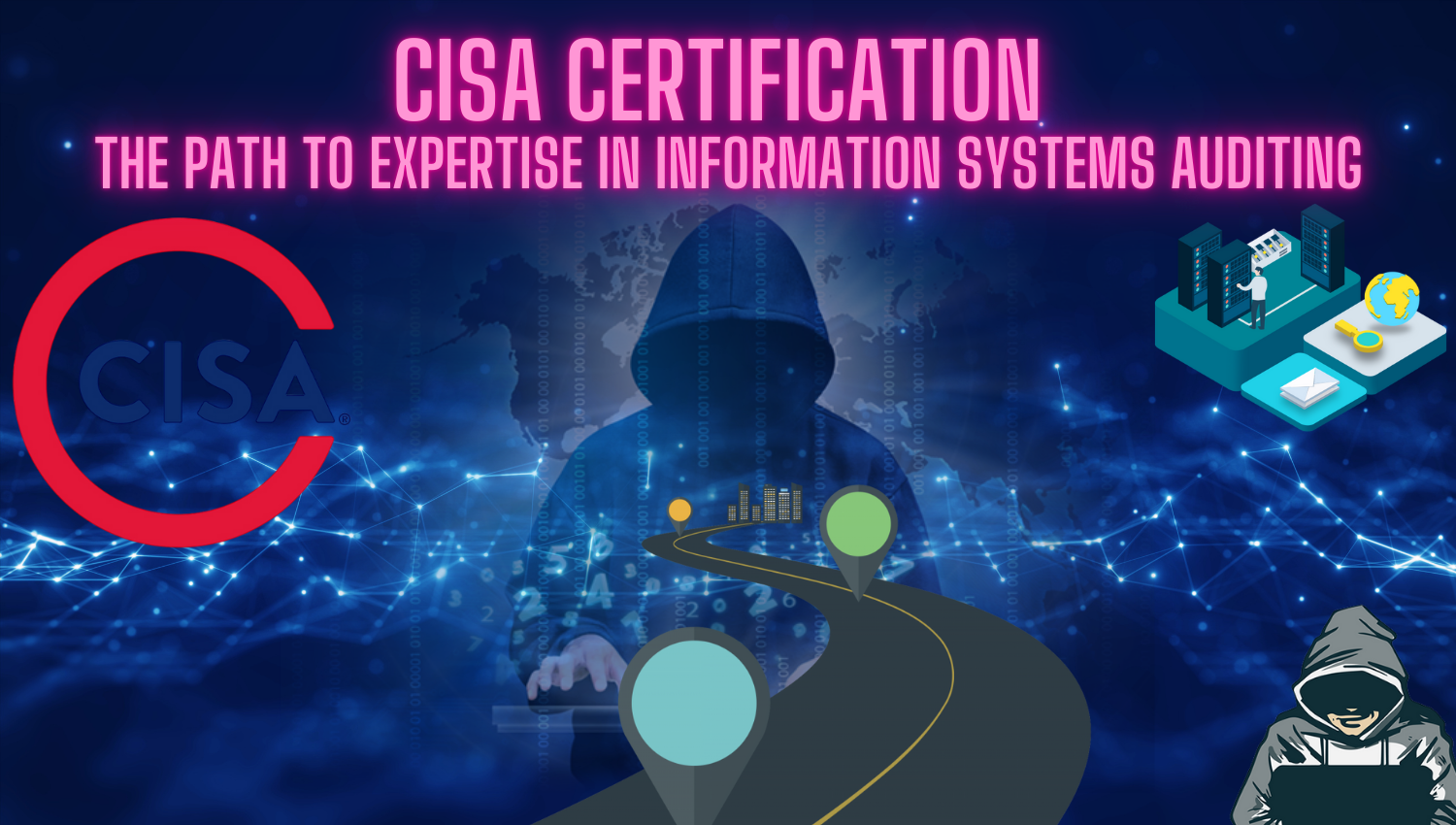Introduction
In the era of information technology and digital transformation, auditing, controlling, and securing an organization’s information systems have become more critical than ever. One of the most prestigious certifications in the field of information systems auditing and security is the CISA (Certified Information Systems Auditor) certification. Provided by ISACA, this certification proves that professionals have high-level expertise in information systems management, auditing, and security. In this article, we will explore what CISA certification is, its benefits, the requirements to obtain it, and details about the examination process.
Learning Objectives
By the end of this article, you will learn:
- What CISA certification is and the areas it covers.
- The career advantages and professional development benefits of obtaining a CISA certification.
- The experience and education requirements needed to apply for the CISA certification.
- The exam process and strategies for success.
What is CISA Certification?
CISA (Certified Information Systems Auditor) is an internationally recognized certification in the field of information systems auditing, control, and security. Offered by ISACA (Information Systems Audit and Control Association), this certification proves that professionals working in information technology and information systems are experts in security, IT governance, auditing, risk management, and control processes.
The CISA certification is an essential milestone for individuals seeking a career in information security, information systems auditing, and IT governance. It provides a significant competitive edge in the job market, especially for auditors, security specialists, and risk management professionals working in these areas.
The main topics covered by the CISA certification include:
- Information Systems Auditing: Examining whether information systems are operating effectively, securely, and efficiently.
- IT Governance and Management: Ensuring that information technologies are managed in alignment with organizational goals and risks are controlled.
- Information Systems Development and Implementation: Ensuring the security and compliance of software development and implementation processes.
- Information Systems Operations and Maintenance: Ensuring systems are aligned with business processes and functioning continuously.
- Information Security Management: Auditing processes and policies that protect an organization’s information assets.
Benefits of Becoming a CISA
Obtaining a CISA certification offers numerous benefits for both individual professionals and employers. The key advantages of holding a CISA certification include:
- Global Recognition: CISA certification is a globally recognized credential that demonstrates competence in information systems auditing, control, and security.
- Career Opportunities: Being CISA-certified increases job opportunities, particularly in information security, auditing, and IT governance roles. Many international companies and government agencies consider CISA certification a prerequisite for auditing positions.
- Expertise: CISA certification allows professionals to specialize in the field of information systems auditing and security. They gain in-depth knowledge about securing and ensuring compliance in business processes.
- Higher Salary: Certified professionals typically earn higher salaries than their non-certified peers. Employers are inclined to reward CISA-certified employees for their expertise and competencies.
- Continuous Professional Development: The process of renewing the CISA certification encourages ongoing professional education and development. This helps professionals stay current with the latest trends in the field.
What Are CISA Requirements?
To obtain the CISA certification, certain professional experience and educational qualifications must be met. The requirements for CISA certification are as follows:
- Experience in Auditing and Information Systems: At least five years of experience in information systems auditing, control, or security is required to qualify for the CISA certification. However, in certain cases, a bachelor’s degree, master’s degree, or specific certifications can reduce the experience requirement. For example:
- A two-year university education can reduce the required experience by one year.
- A relevant master’s degree can offset up to two years of experience.
- Passing the Exam: Passing the CISA exam is mandatory. The exam assesses proficiency in information systems auditing, control, and security.
- Continuing Education and Development: After obtaining the certification, professionals must participate in ongoing Continuing Professional Education (CPE) programs and document their professional development annually. This ensures that CISA-certified individuals maintain up-to-date knowledge in their field.
How Does the Exam Process Work?
The CISA exam is administered by ISACA either at an exam center or online. The exam process and format are as follows:
- Exam Format: The CISA exam consists of multiple-choice questions designed to test professional competence in information systems auditing, control, security, and risk management. A total of 150 questions are included.
- Exam Duration: The total exam time is four hours. During this time, candidates answer questions that focus on the core topics mentioned above.
- Scoring: The exam is scored on a scale of 200 to 800, and a minimum score of 450 is required to pass.
- Exam Fees: ISACA members typically pay a lower fee for the CISA exam, while non-members pay higher fees. Current fees can be checked on ISACA’s official website.
- Results: Exam results are usually released five to six weeks after the exam is completed.
Conclusion
The CISA certification is an invaluable credential for professionals working in information systems auditing and security. It offers significant advantages both for personal growth and for strengthening organizational security policies. For those looking to specialize in information systems auditing, CISA provides professional recognition and global credibility. While the certification process may be challenging, the opportunities and career benefits it offers make it worth the effort.
With a CISA certification, professionals not only enhance their ability to audit information systems effectively but also equip themselves with a broader range of expertise in information security, preparing them for the future.
May Attract Your Attention

